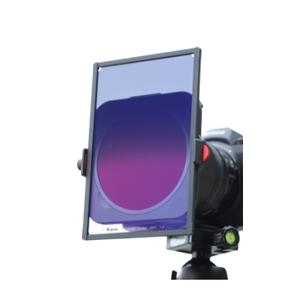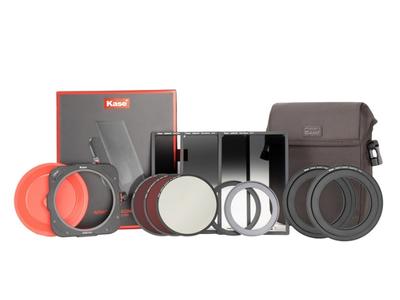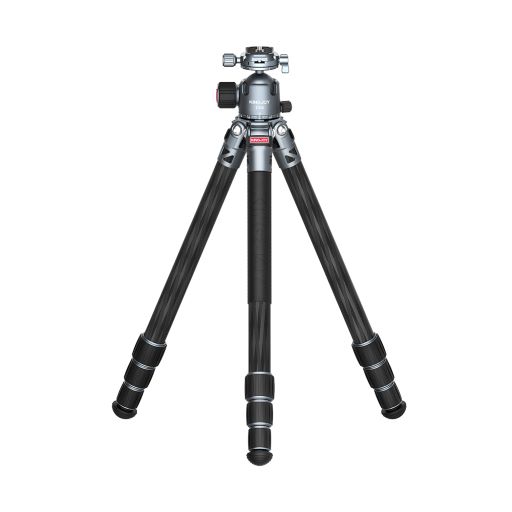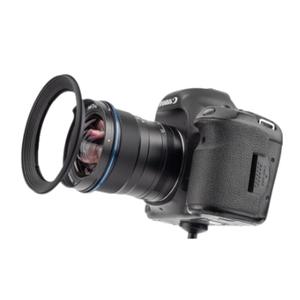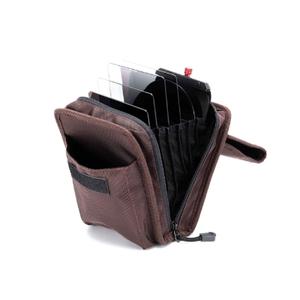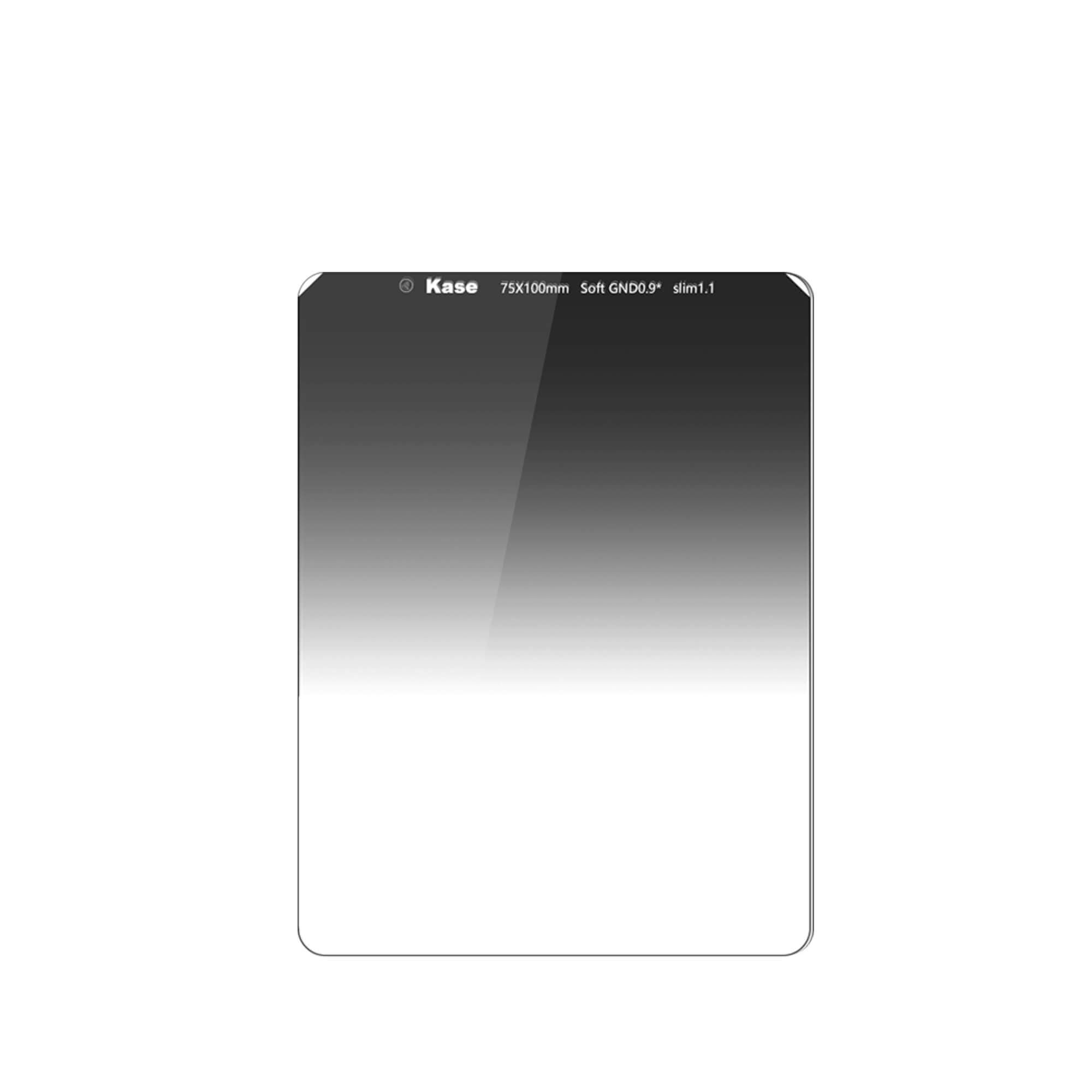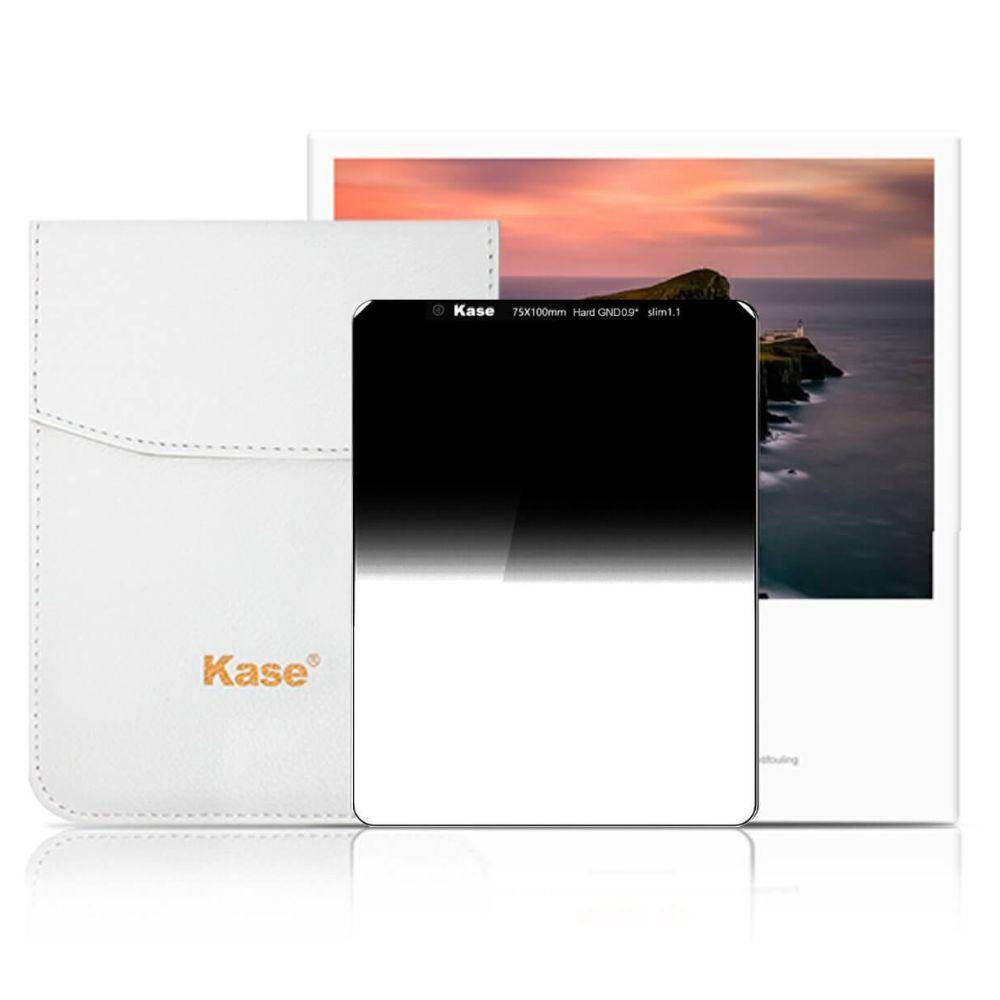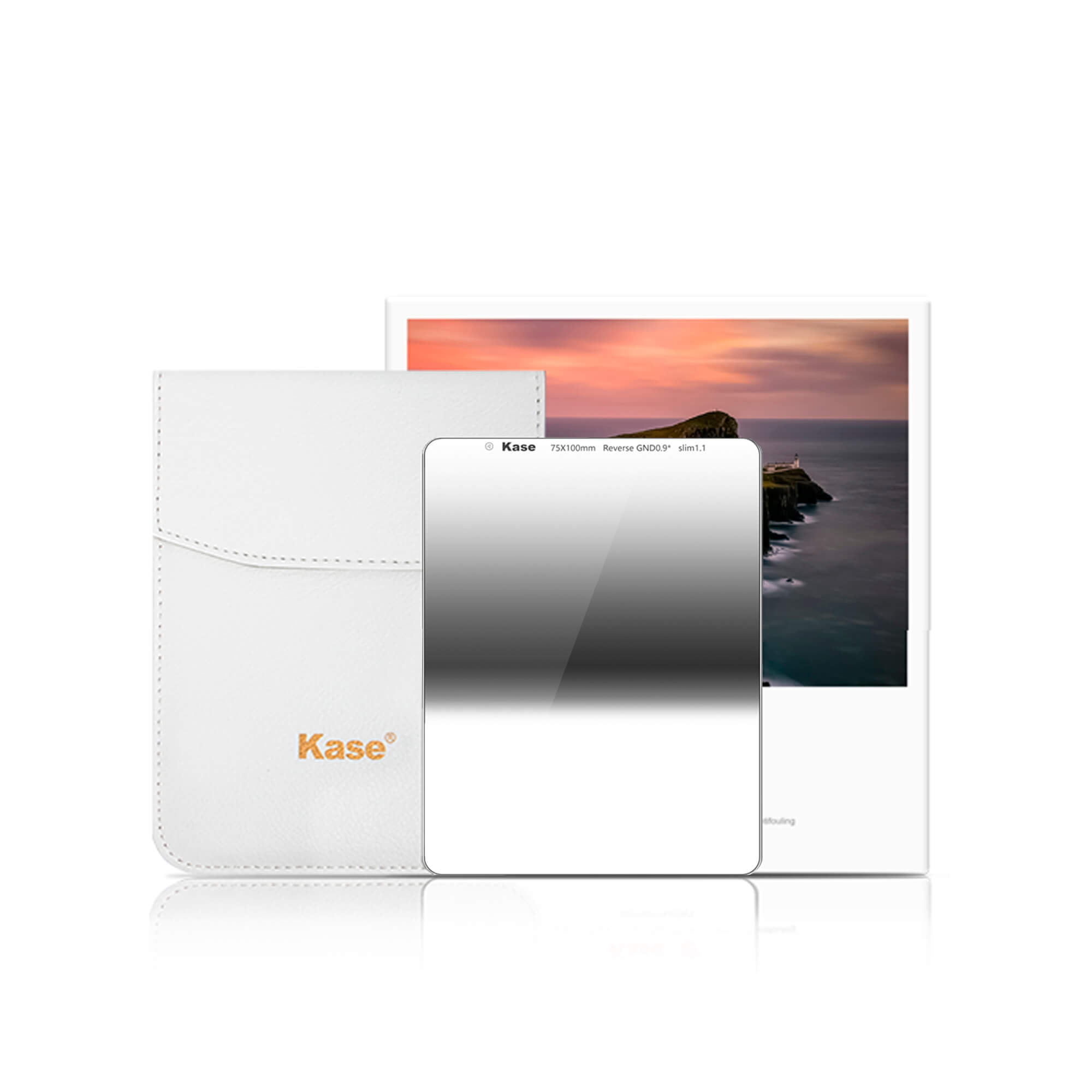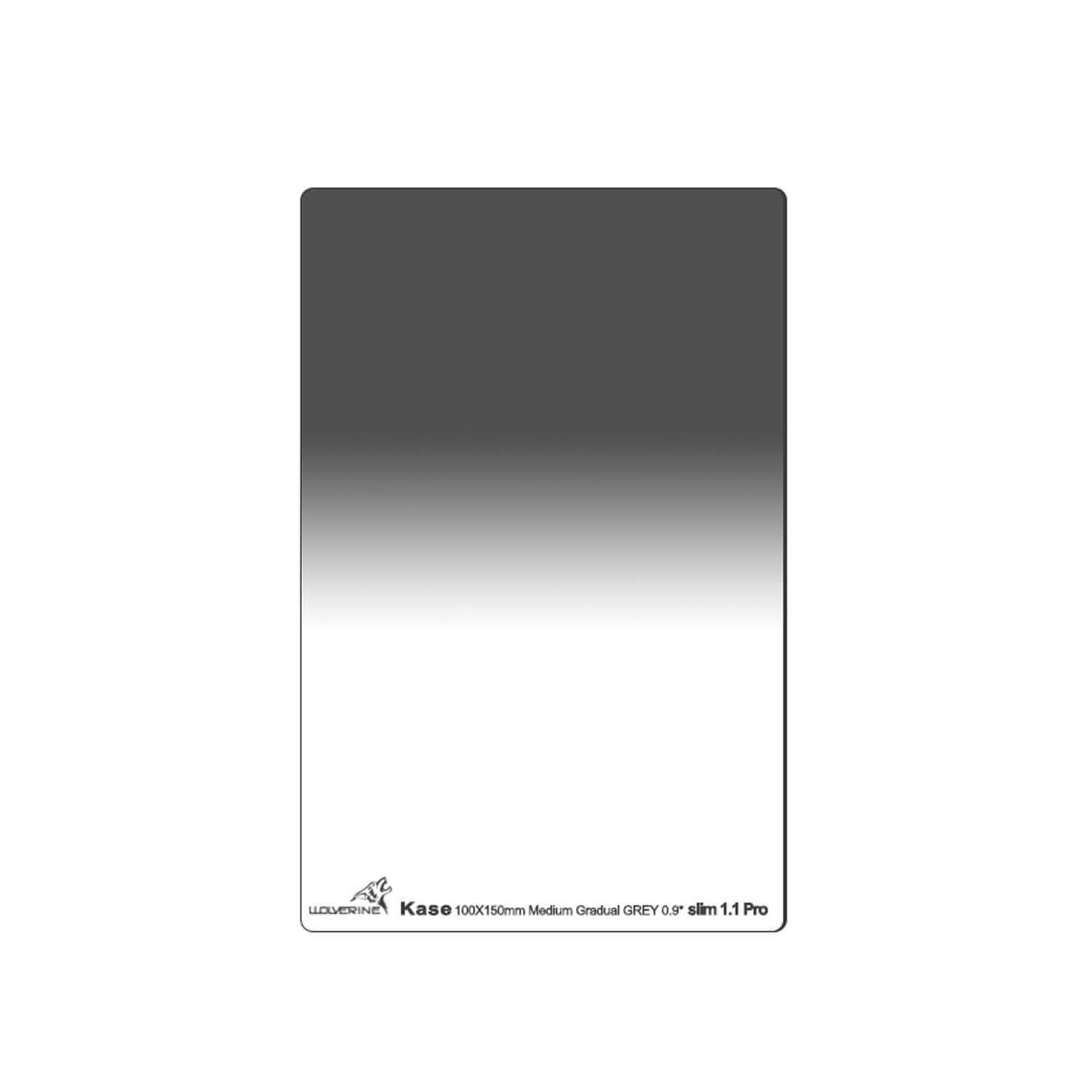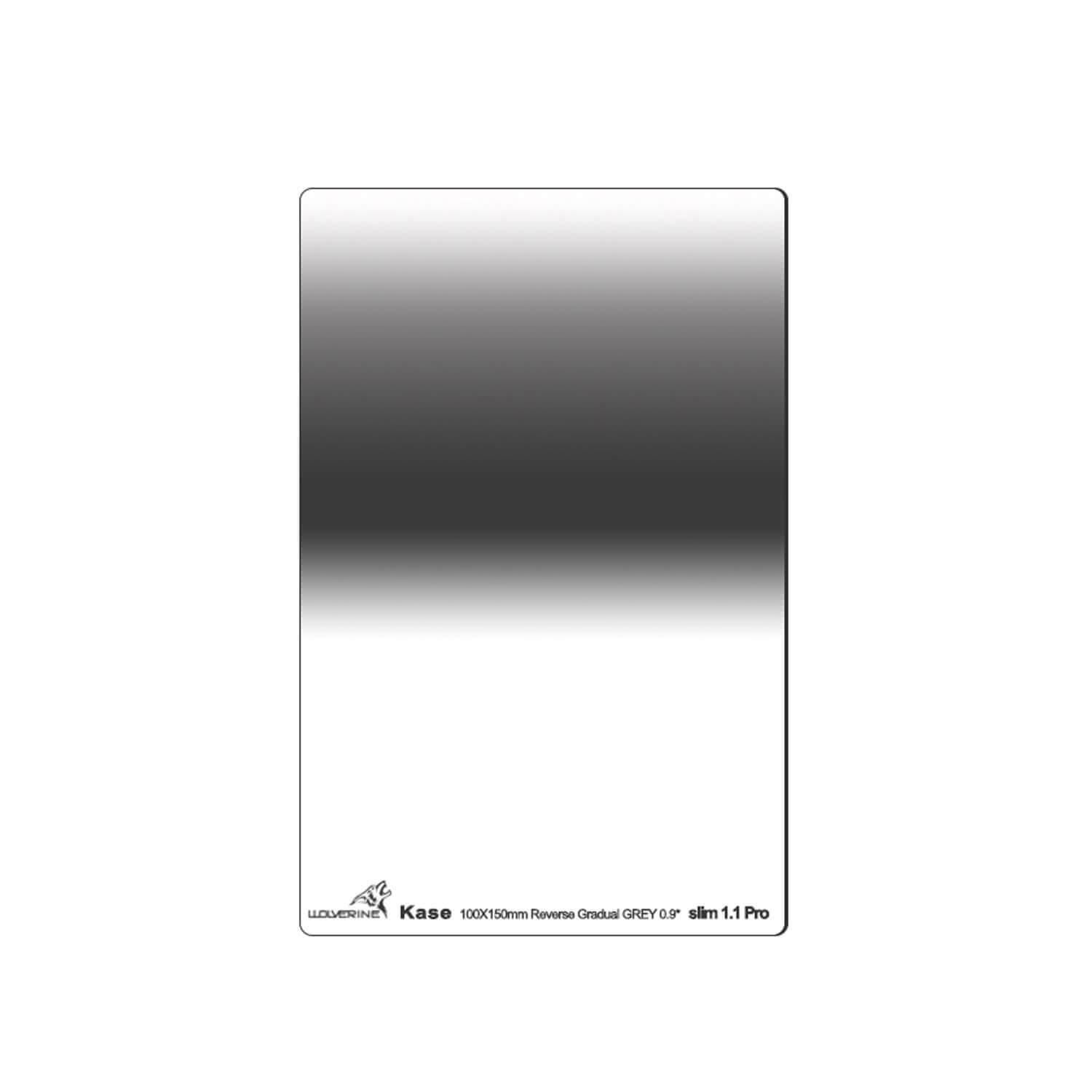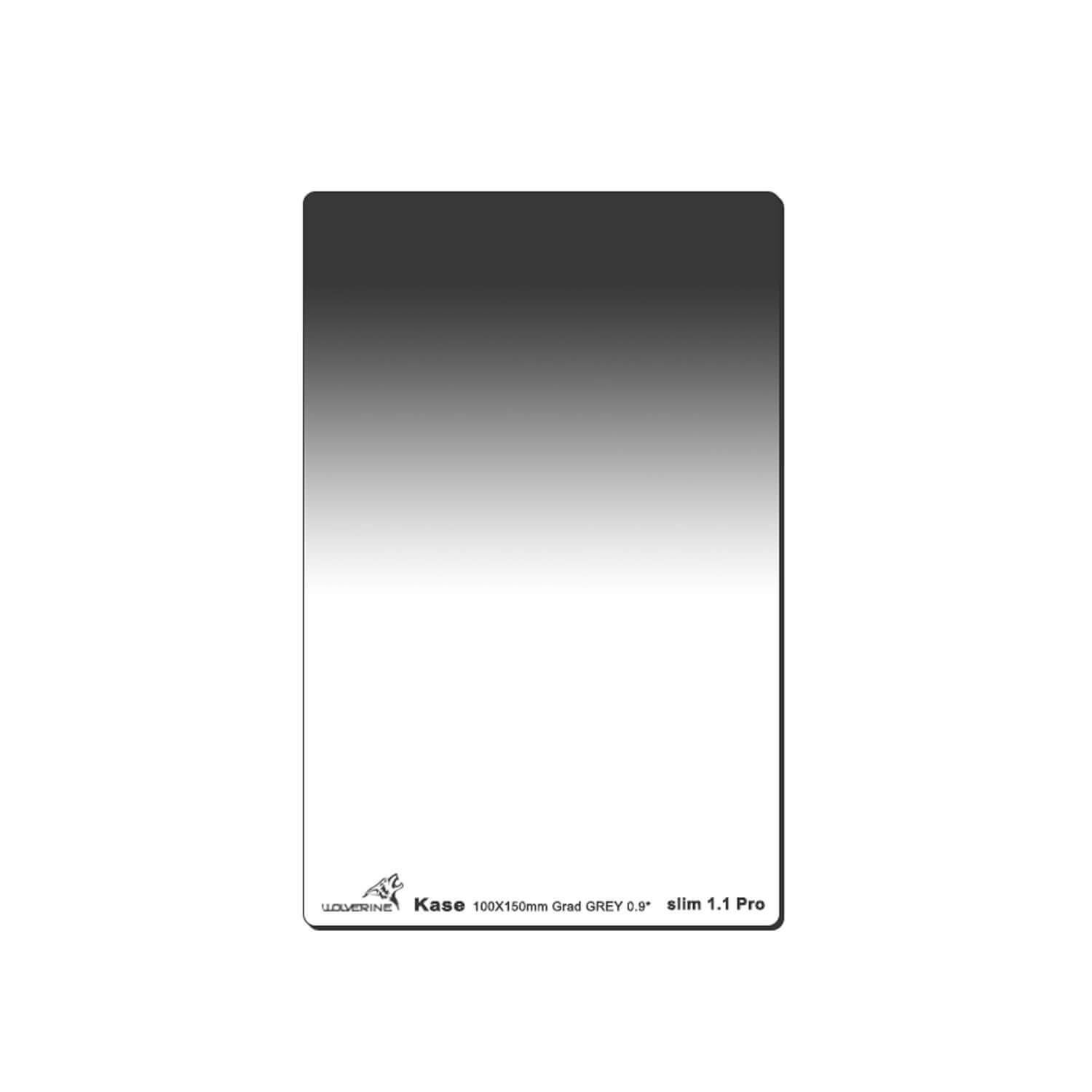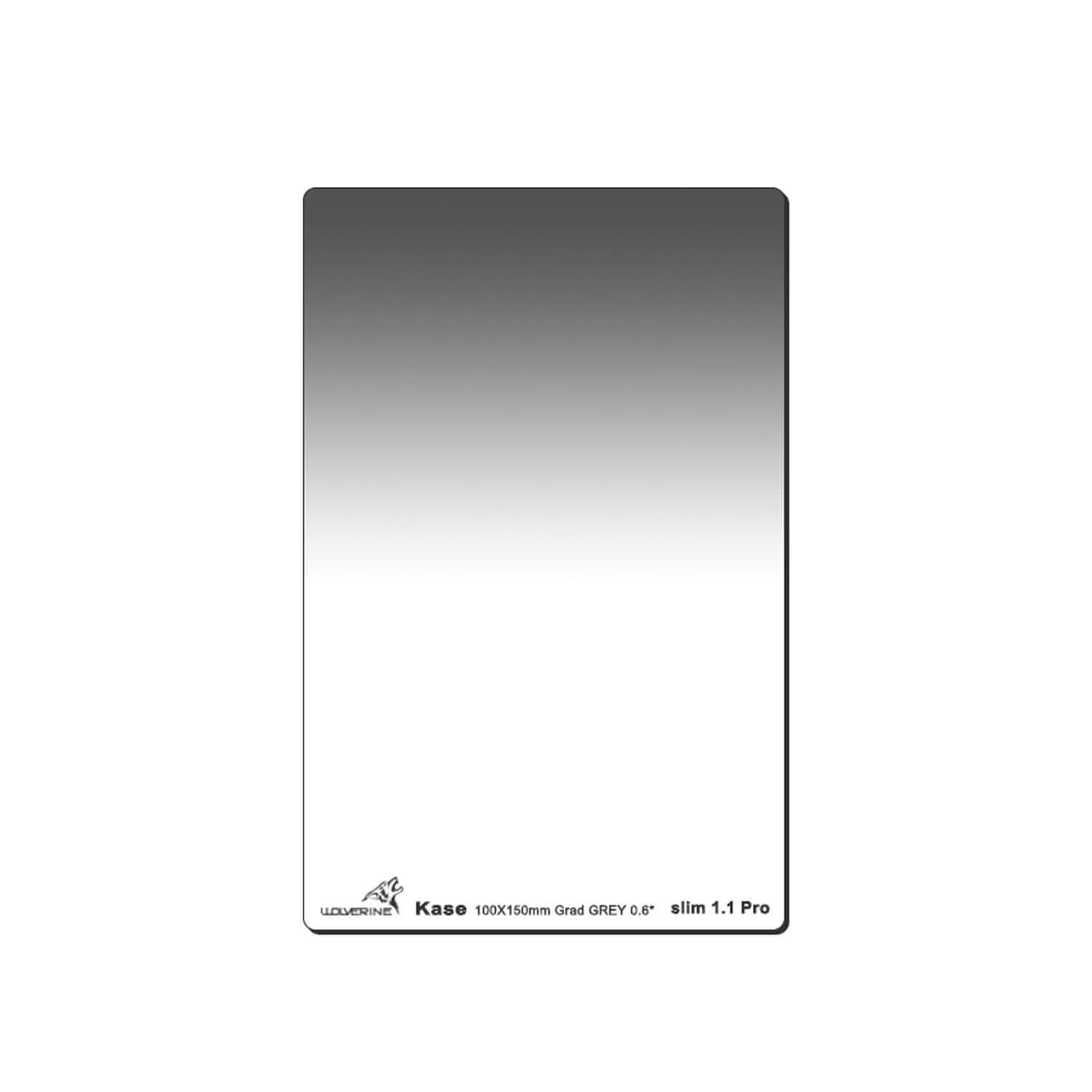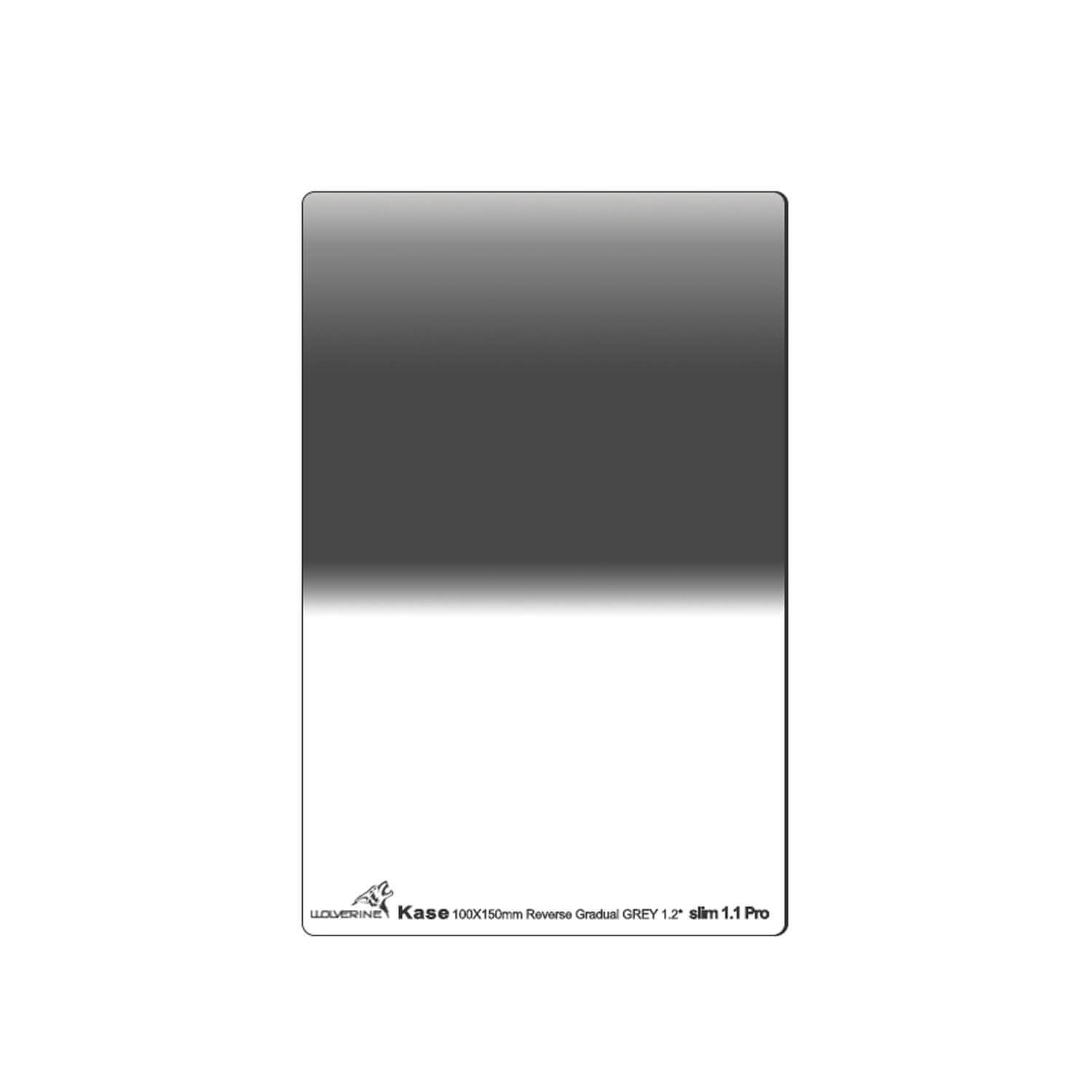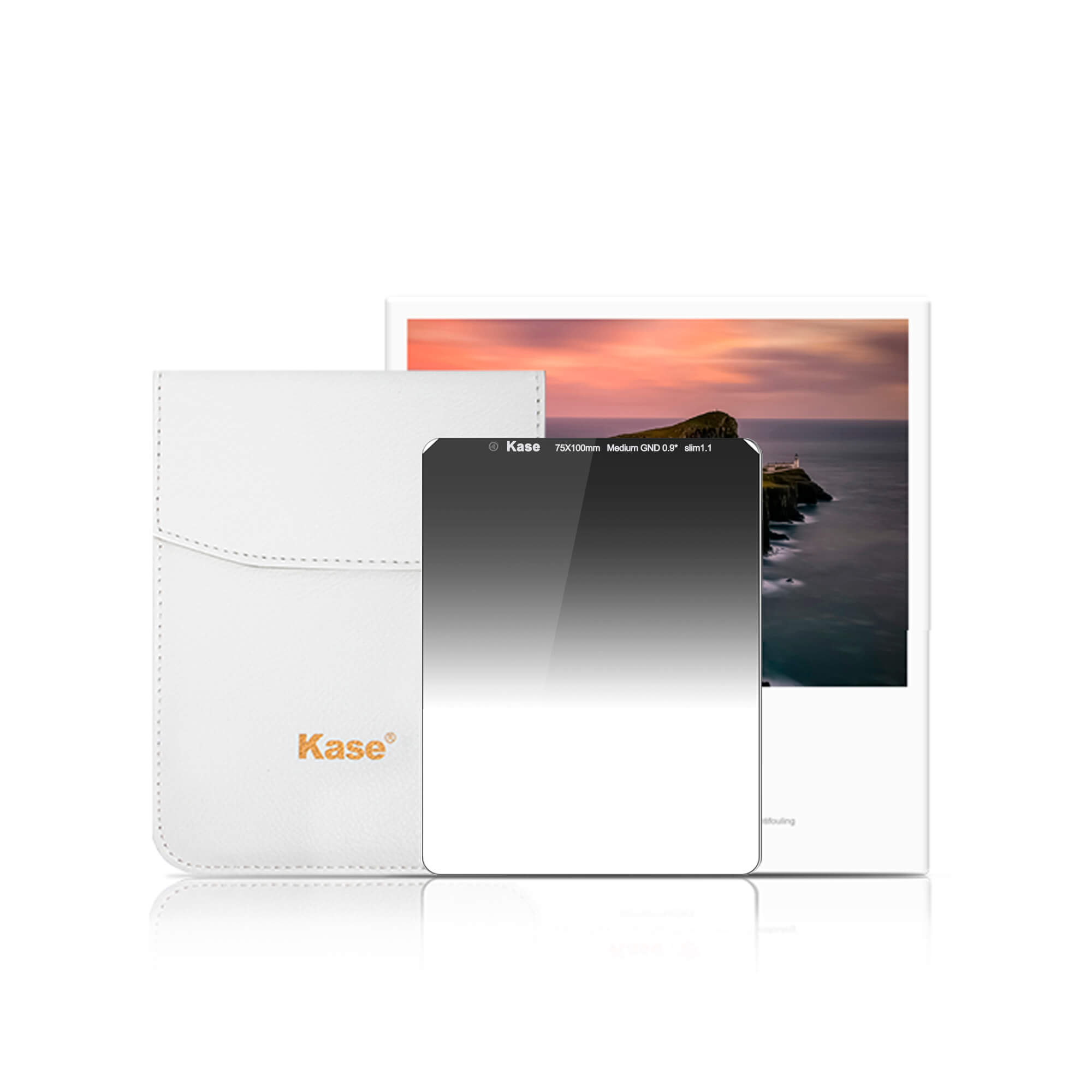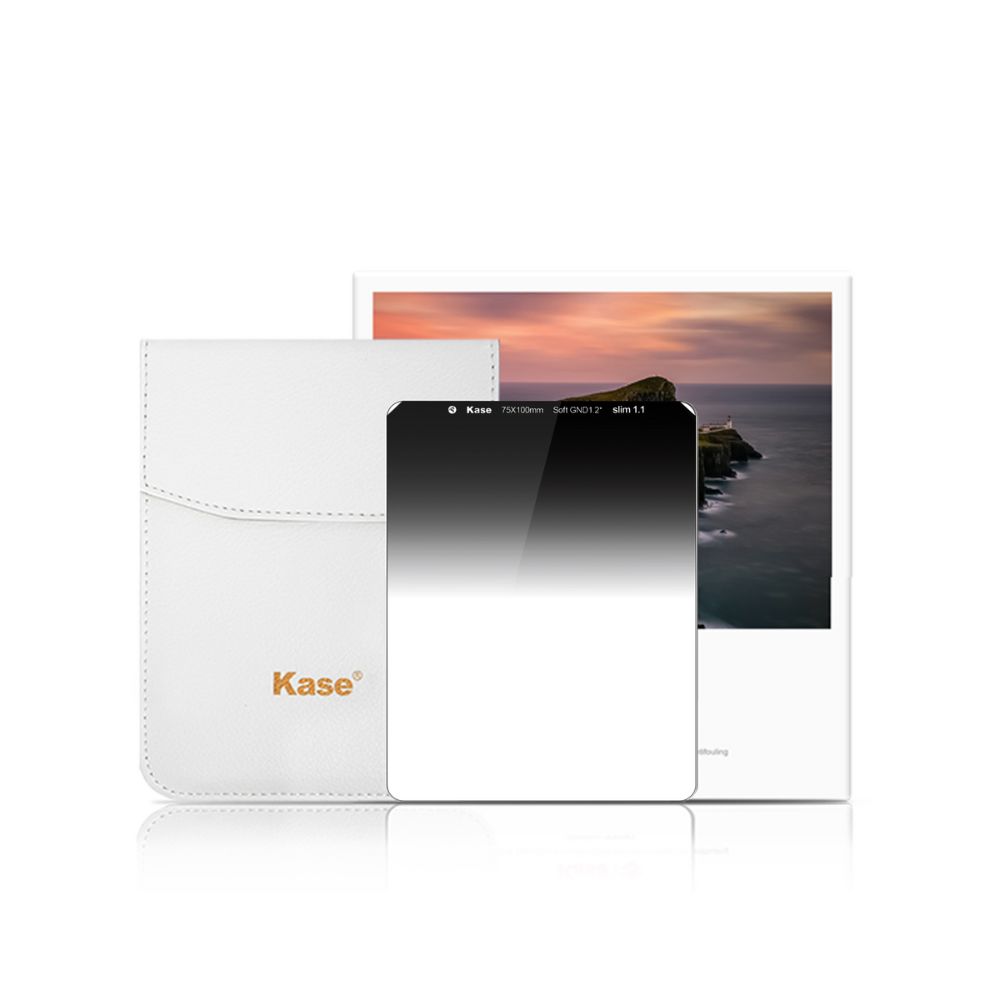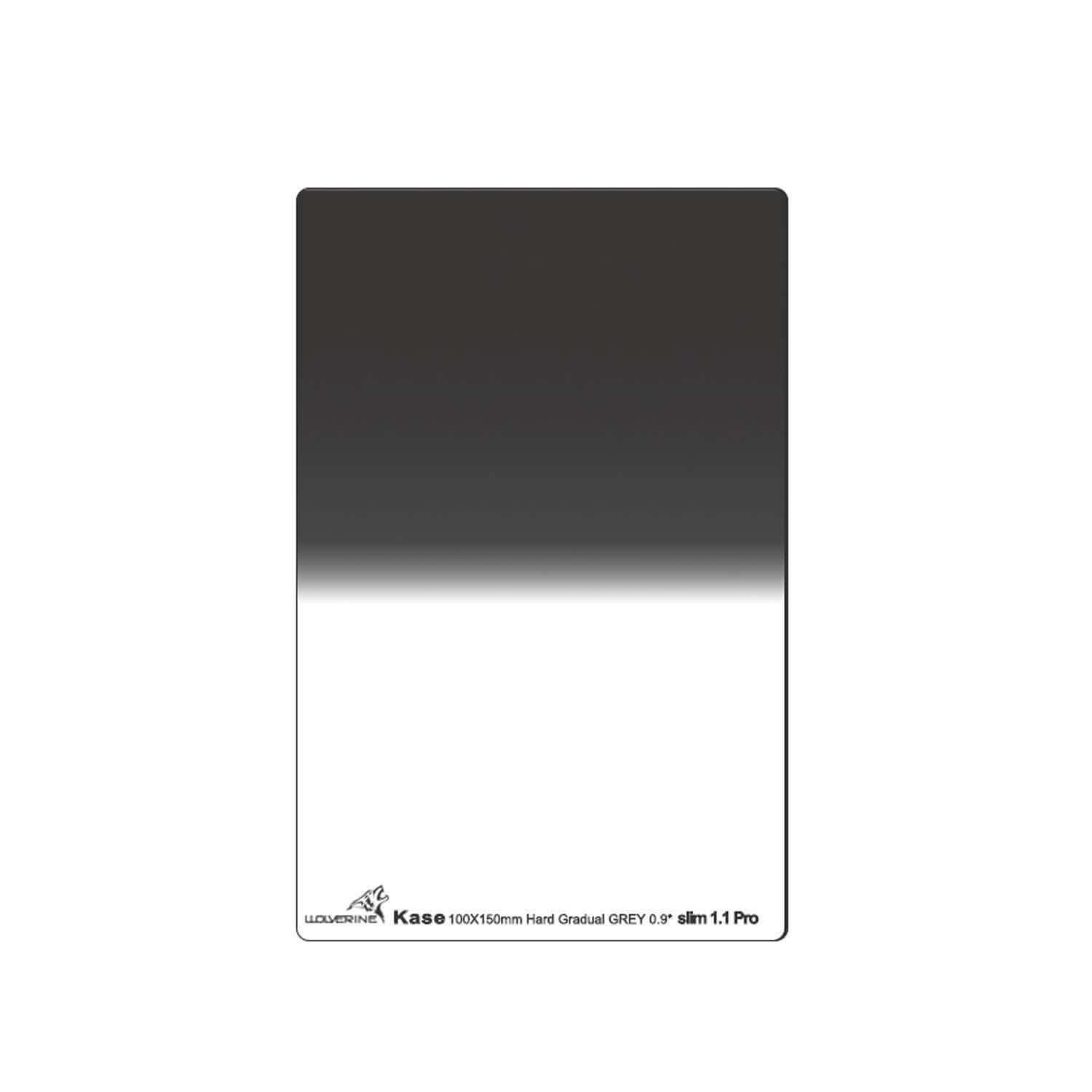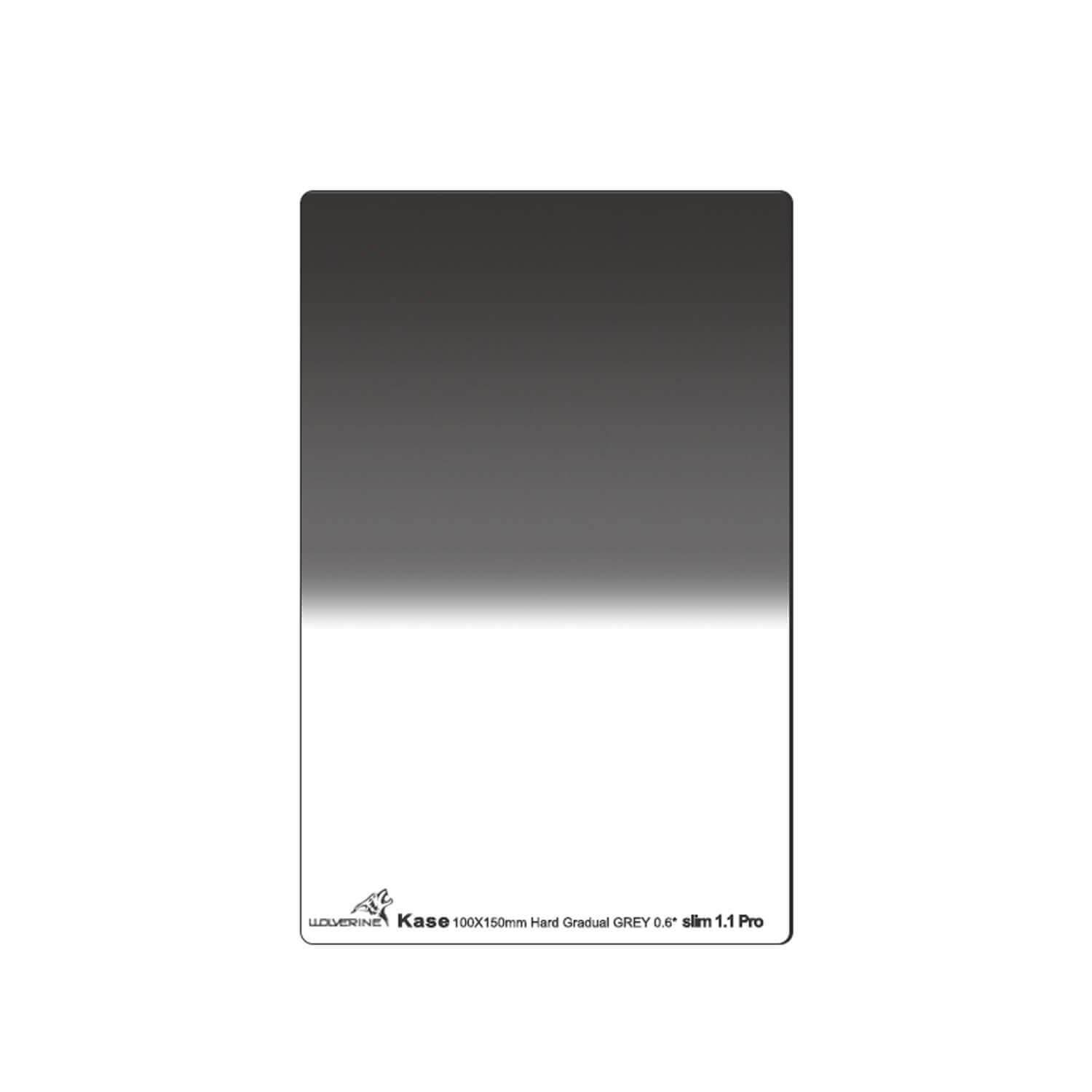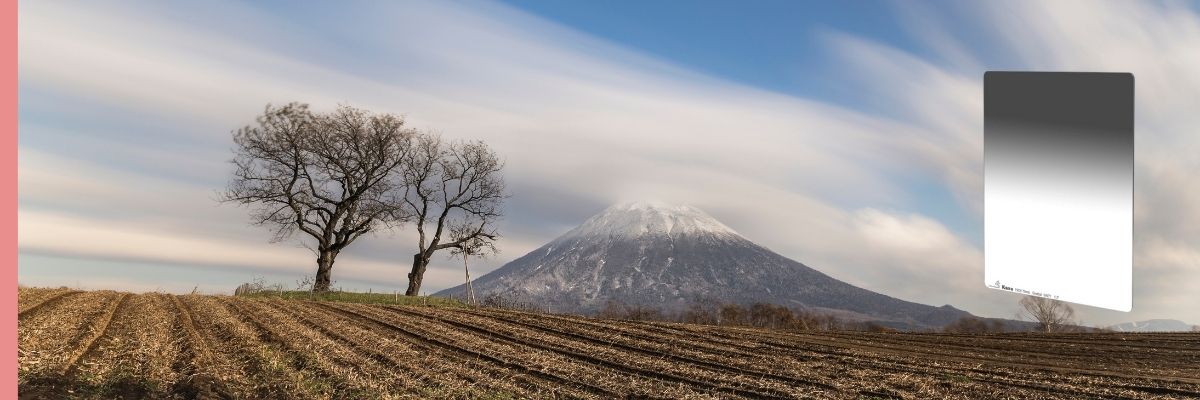
Ultra-thin rectangular graduated ND (GND) filters for camera lens from Kase
Discover our wide range of ultra-thin rectangular graduated ND filters, perfect for enhancing your landscape photography. With their innovative design, these filters seamlessly blend the colours in your photos, creating stunning and captivating images. Choose from our selection of high-quality filters and let your creativity soar.
In Stock
Not In Stock - Preorder possible
In Stock
In Stock
Not In Stock
Not In Stock
In Stock
Not In Stock
In Stock
In Stock
Not In Stock
Not In Stock
Perfectly balanced exposures with slim rectangular gradient ND filters
Our slim graduated ND filters are the go-to tool for getting stunning images with perfectly balanced exposures. The fine gradation of the grey gradient allows you to harmoniously balance the sky and foreground of a landscape shot, creating an impressive depth effect.
The ultra-thin filters fit perfectly into the filter holder system of your camera. The slim profile of these gradient ND filters allows for easy stacking, giving you even more creative possibilities. The high-quality materials and precise workmanship guarantee first-class image quality without compromising sharpness or contrast.
Why choose Kase Wolverine rectangular gradient ND filters?
Our Kase Wolverine SLIM rectangular graduated ND filter series is designed for shooting in difficult lighting conditions when precise control over the light is required.
- Perfect colour neutrality
- Scratch-resistant optical glass
- Oil and water-repellent nano-coating
- Easy to stack in the filter holder
FAQ about rectangular gradient ND filters
What is a graduated neutral density filter and how does it work?
Graduated neutral density or gradient filters are glass filters with one side clear and the other darkened. The filter has a centre where the darker and clearer halves blend, and the transition between them varies depending on the filter type. They balance the exposure of a scene with both lighter and darker tones, such as the sky and foreground in landscape photography. Gradient ND filters help capture a scene's dynamic range within a single exposure, which modern camera sensors cannot reproduce yet.
When should you use slim square gradient camera filters instead of regular ones?
Slim square or rectangular graduated ND filters are good in scenarios when using wide-angle lenses because they help to minimise vignetting issues often associated with standard-sized filters on such lenses. The slim design also addresses filter stack height issues, reducing the chances of vignetting when stacking multiple filters. Additionally, ultra-thin gradient ND filters are a practical choice for lightweight travel, offering portability without compromising image quality.
When are graduated ND filters necessary?
Gradient filters are essential tools in photography when faced with scenes featuring substantial variations in brightness. One common scenario is landscape photography with a bright sky and a darker foreground. In such cases, graduated neutral density filters are used for balancing exposure by selectively darkening the sky portion, preventing overexposure while retaining detail in the foreground. During sunrise or sunset, especially when the horizon is exceptionally bright, gradient filters are vital for managing extreme contrast between the bright horizon and the darker sky.
Which gradient ND lens filter to buy?
Selecting the right slim rectangular gradient ND filter depends on your specific photography needs and what scenes you frequently encounter. Different types of gradient ND filters are good for different shooting scenarios. Here's a brief overview to guide your decision:
- Soft graduated ND filters: Suitable for scenes that contain smooth shifts between bright and dark areas, such as landscapes featuring a gently illuminated skyline.
- Medium graduated ND filters: A compromise between soft and hard-edge filters, medium GND filters provide balanced darkening for scenes with mixed contrasts.
- Hard graduated ND filters: Hard-edge filters have a more defined darkening effect, suitable for scenes with sharper contrasts.
- Reverse graduated ND filters: Best used for sunrise or sunset scenes where the brightest area is near the horizon.


